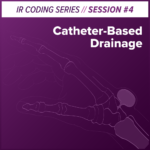CMS says MOON errors will not affect billing/payment.
EDITORS NOTE: This article is an update from last week’s article Erroneous Guidance by NGS Could Pose Problems for Hospitals.
Observation hours will not be removed from claims if hospitals fail to accurately complete and deliver to patients the Medicare Outpatient Observation Notice (MOON) – marking a development that runs contradictory to the guidance issued last week by NGS, a Medicare Administrative Contractor (MAC), as reported by RACmonitor.
While working on a story about looming claim denials for MOON errors, Nina Youngstrom, editor of Report on Medicare Compliance, was told by a Centers for Medicare & Medicaid Services (CMS) spokesperson that “the failure of a hospital to provide a Medicare Outpatient Observation Notice (MOON) to a patient would result in a deficiency for non-compliance with the Medicare Conditions of Participation, but failure to deliver properly does not affect billing/payment. Non-compliance with the Medicare Conditions of Participation may result in termination from the Medicare program.”
As reported by RACmonitor, proper completion and delivery of the MOON is a condition of participation, and not a condition of payment.
“One can only hope that NGS goes back and reprocesses these claims,” Ronald Hirsch, MD, recently told Monitor Mondays listeners. “But I’m not sure I’d count on it, so if you had any cases reviewed, I’d call NGS.”
Last week, RACmonitor reported that during a webinar attended by Hirsch, an NGS representative said that if the MOON was not completed properly or delivered within the proper time frame, all of the observation hours should come off the claim, and the hospital won’t get the Observation Comprehensive APC (Ambulatory Payment Classification) payment.
“If any claim error, even one that does not affect the payment amount, can now lead to a full recoupment, it would set a very dangerous precedent,” Hirsch said last week.
In other regulatory news, Hirsch said on Monday that he is seeing audits of observation stays for which the patient spends more than 48 hours in observation.
“Who would ever think you’d get audited for not admitting someone as an inpatient? But it’s happening,” Hirsch said. “These audits are probably less about money than they are about beneficiary rights, but they are happening, nonetheless.”
Hirsch also noted that the Recovery Audit Contractors (RACs) have asked for permission to start auditing short inpatient admissions, specifically for patients undergoing stem cell or bone marrow transplants.
“Of course, the rationale for their request is not given, but I suspect that it dates to an audit by the U.S. Department of Health and Human Services (HHS) Office of Inspector General (OIG) in 2016, which found a 93 percent error rate, and a Supplemental Medical Review Contractor (SMRC) audit in 2017, which had an 86 percent error rate,” Hirsch said. “Now, remember, this is not about the need for the transplant; it’s about the status of the patient.”
“(But) today many patients can get their infusion of bone marrow or stem cells and go home after a day, with daily visits to the clinic to monitor them,” Hirsch added. “And it is these patients that the audits are targeting, because, of course, their admission lasts under two midnights. When billed as an inpatient admission, the corresponding DRGs have geometric mean length of stays of 5 to 13 days, so one could see that a one-day length of stay would stand out. And the transplant HCPCS code is not an inpatient only list, so that means the two-midnight rule does apply – and if the plan is a one-day stay, that’s default outpatient.”
So the first question is whether CMS will approve this RAC request, and if they do, whether other short-stay RAC audits will be forthcoming.
We’ll all be watching closely.
Programming Note: Listen to Dr. Ronald Hirsch every Monday on Monitor Mondays, 10-10:30 a.m. EST.













